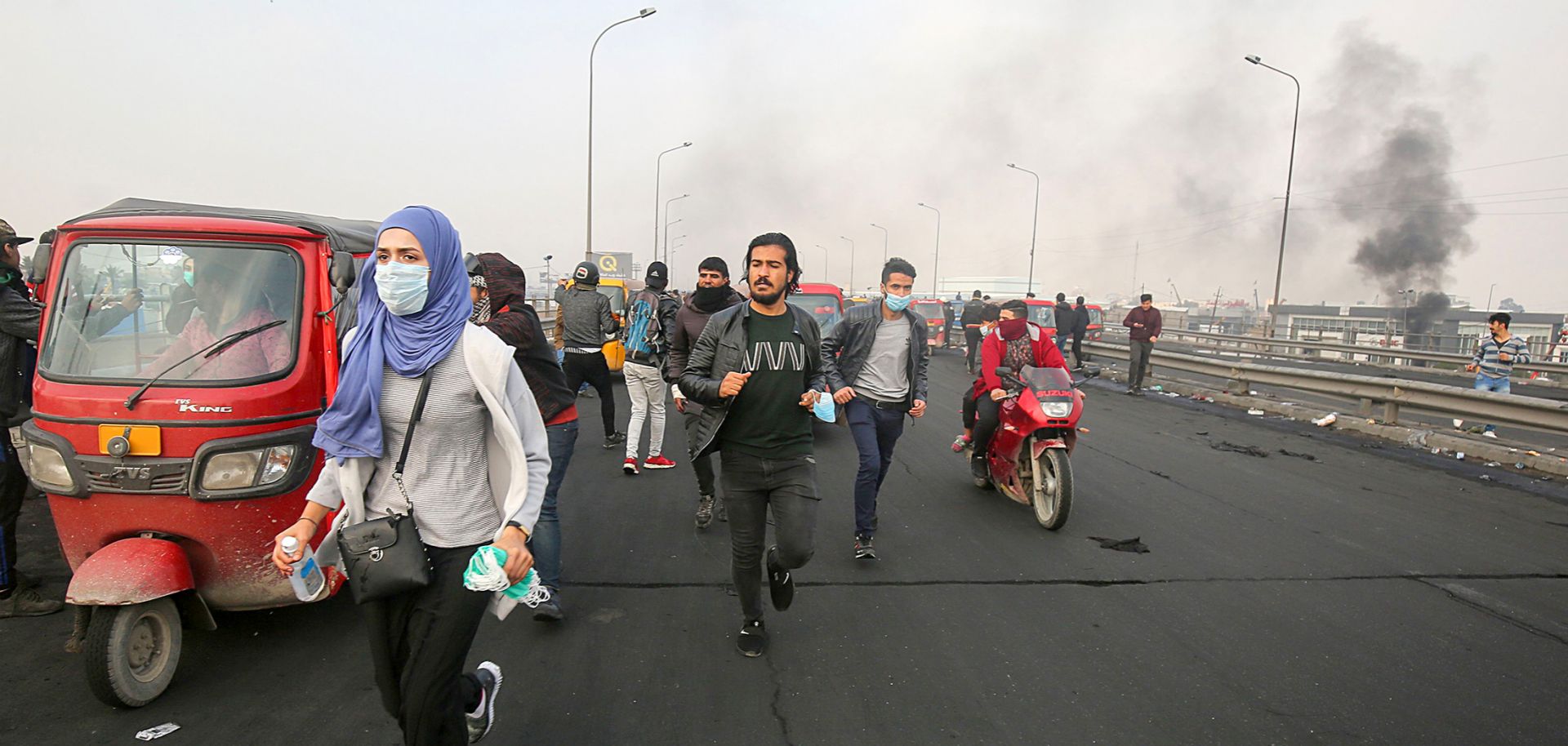ASSESSMENTS
Why Iraq Remains Ripe for a U.S.-Iran Confrontation


Feb 4, 2020 | 10:30 GMT

Protesters run for cover on a highway in Baghdad during a Jan. 23 anti-government demonstration. Amid escalating political unrest, the Iraqi government will struggle to keep the country's armed militias from conducting an attack that pushes the United States and Iran toward war.
(AHMAD AL-RUBAYE/AFP via Getty Images)
Highlights
- Iraq is the most likely site for a U.S.-Iran confrontation in the coming months because of Iran's deep ties to several violent and capable Iraqi militias in close proximity to U.S. forces.
- While the perception of a common U.S. threat will foster short-term cooperation between Iran-allied militias, Washington's assassination of a prominent Iraqi militia leader will ultimately increase competition between the country's rival armed forces.
- This will make it all the harder for Baghdad to control militia-led violence, in addition to political violence being stoked by escalating anti-government protesters.
Subscribe Now
SubscribeAlready have an account?
